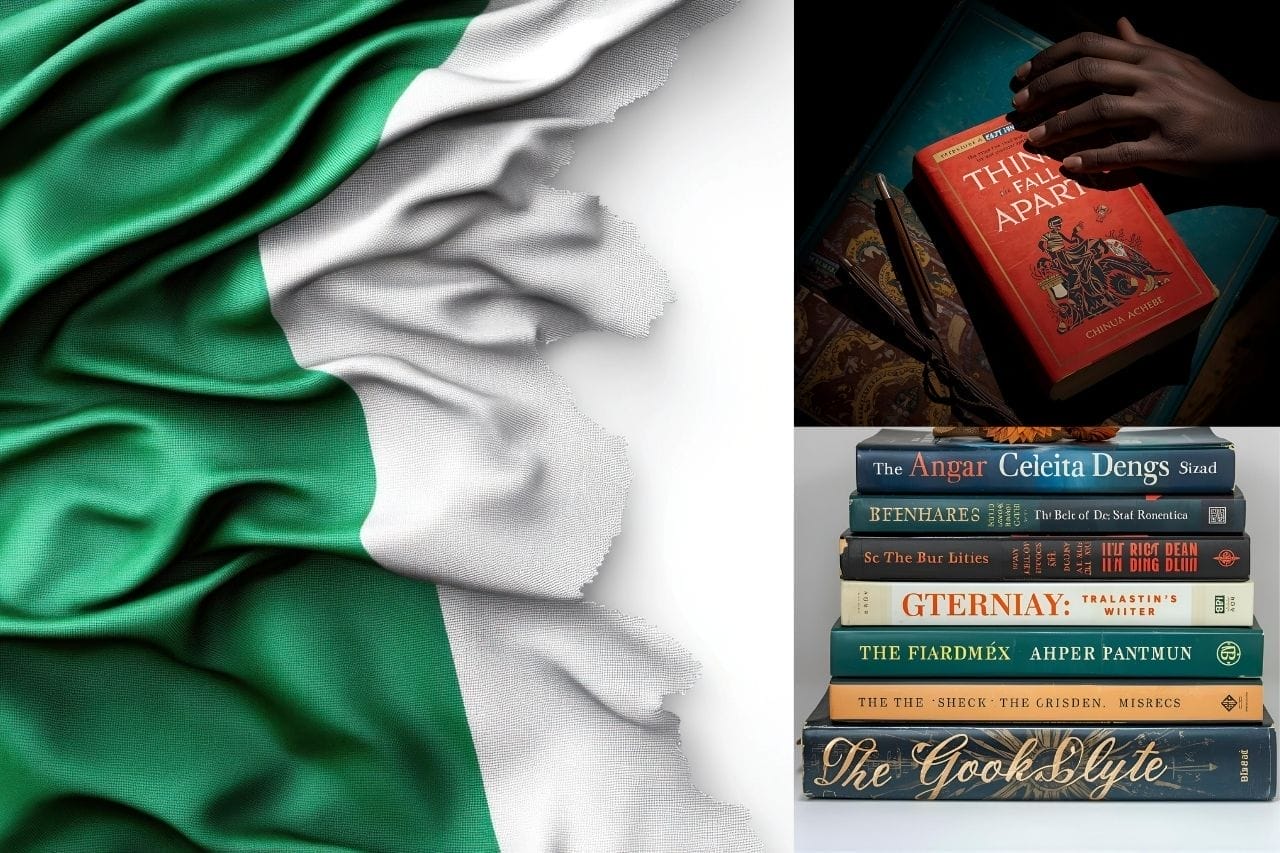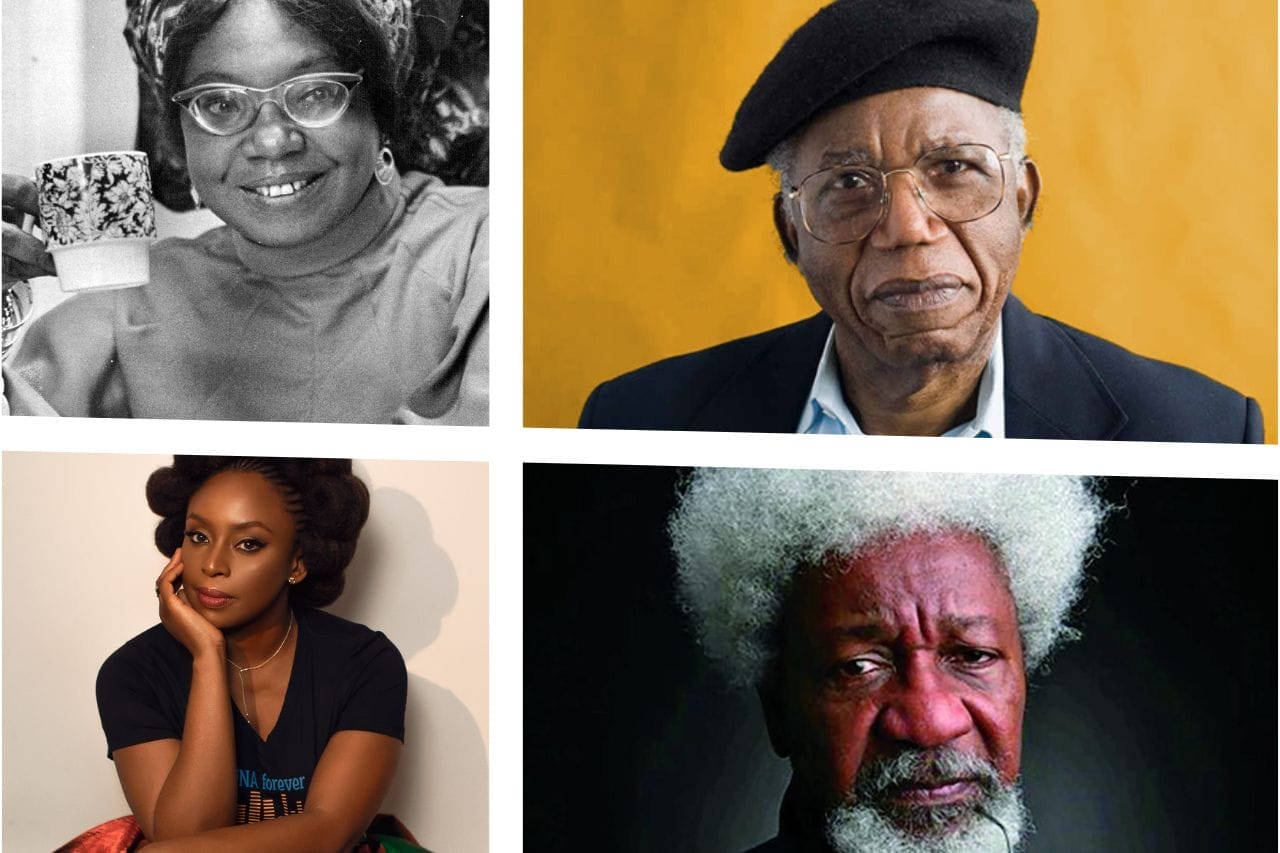Writing is not just about putting words on paper, it’s also about understanding the language and culture surrounding the craft.
The world of writing is full of unique and fascinating terms. From authors to poets, the language of writing is rich and varied. Whether you’re a seasoned author or an aspiring writer, understanding the terminology of the trade is essential. Delve into the world of words and discover the terminology that defines the writing community.
Here are 25 types of writers you should know about, and their contributions in literature and writing in general.
1. Anthologist: A person who collects and edits literary works, such as poems, short stories, or essays, and publishes them in a single volume or series. Anthologists often specialize in specific genres, periods, or themes, and may provide introductions, notes, and other contextual material to help readers understand and appreciate the works included. Some notable Nigerian anthologists include Helon Habila (The Granta Book of the African Short Story), Chinua Achebe (The Heinemann Book of Contemporary African Short Stories) and Wole Soyinka (Poems of Black Africa)
2. Author: A person who writes a book, article, or other written work or responsible for its content and ideas. Nigerian literature is graced with talented authors that are the creative minds behind many amazing stories, poems, and plays that showcase the country’s rich cultural heritage. Some notable Nigerian Authors are Ayobami Adebayo, Ado Ahmad Gidan Dabino, Zaynab Alkali, Buchi Emecheta, Wole Soyinka, Chinua Achebe and others.
3. Autobiographer: A writer who creates their own life story, reflecting on experiences and insights. Nigeria has been blessed with notable autobiographers which include: Chike Momah (A Nigerian Lawyer’s Odyssey), Olusegun Obasanjo (My Watch), Nuhu Ribadu (My Story: A Memoir) etc
These autobiographers have shared their experiences on various aspects of Nigerian life, including:
• Childhood and growing up
• Education and career
• Politics and governance
• Culture and tradition
• Personal struggles and triumphs
4. Biographer: A writer who creates in-depth accounts of people’s lives past and present, often based on research. Biographers have written about notable figures, including politicians, writers, artists, and historical figures. Notable Nigerian biographers include: Femi Osofisan (Majekodunmi: The Man and His Times), Toyin Falola (Obafemi Awolowo: The End of an Era?), Abiola Irele (Biko: The Life and Times of Steve Biko) etc
5. Blogger: A person who writes and publishes articles, thoughts, and opinions on a blog, which is a type of online journal or diary. In Nigerian literature, bloggers have become increasingly influential, sharing their perspectives on various aspects of Nigerian life, culture, and society. Here are some popular Nigerian bloggers and what they do; Bella Naija – lifestyle and entertainment blogger, Chude Jideonwo – social commentator and blogger, Tolu Ogunlesi – journalist and blogger, Linda Ikeji – entertainment and lifestyle blogger. Bloggers have built large followings and have become influential voices in Nigerian online discourse.
6. Chronicler: A person who records and writes about events, stories, and history, often in a detailed and systematic way. In Nigerian literature, chroniclers have played a crucial role in preserving the country’s history, culture, and traditions. They include Buchi Emecheta who wrote “The Joys of Motherhood”, J.F. Ade Ajayi who wrote “Christian Missions in Nigeria” and “A Thousand Years of West African History”, Abubakar Imam who wrote “Tafiya Mabuɗin Ilimi” and Samuel Johnson who wrote “The History of the Yorubas”
7. Collaborator: A person who works together with others on a project, activity or creative work, sharing ideas and credit. This may also be termed as Co-authors, translators, researchers, illustrators etc. One of the most significant examples of collaboration in Nigerian literature is Chinua Achebe and Robert Gibson’s co-edited anthology, “The Heinemann Book of Contemporary African Short Stories”
8. Compiler: A person who collects and gathers information, texts, or resources from various sources and compiles them into a single work, such as an anthology, bibliography, or database. For example, Olu Obafemi compiled “The Nigerian Theatre”, Toyin Falola compiled “The Yoruba in Transition”, Chukwuemeka Ike compiled “The Nigerian Short Story” and Buchi Emecheta compiled “The New African Writers”.
By compiling and preserving Nigerian literary resources, compilers help to promote Nigerian literature globally, preserve cultural heritage and traditions and also Provide resources for research and workshops.
9. Copywriter: A person who writes words that promote a product, service, or idea, often in an advertising or marketing context. Copywriters have made significant contributions to various fields, including: creating persuasive ads for products and services and writing engaging online content, such as blog posts and social media posts. One of the most popular Nigerian copywriters is Biodun Shobanjo.
10. Correspondent: A person who sends news, reports, or articles to a newspaper, magazine, or online publication from a specific location or on a specific topic. Correspondents have played a crucial role in sharing news, stories, and perspectives from across countries and beyond. Although there are many types of correspondents, their work is usually the same. Dele Giwa is regarded as the pioneer of investigative journalism in Nigeria, while Yakubu Mohammed is one of the veteran journalist and columnist in Nigeria.
11. Critic: A person who analyzes, evaluates, and interprets the quality, meaning, and significance of a literary work, often providing insightful commentary and feedback. Literary critics analyze and interpret literary works, such as novels, poems, and plays, while academic critics conduct in-depth research and analysis of literary works in academic settings. Ato Quayson and Dan Izevbaye are but few examples of critics in Nigeria.
12. Draftsman: A writer who creates detailed plans, outlines, or drafts for their work. For example, Mazi Chukwuemeka Ike was a Nigerian writer, critic, and draftsman. He was a prominent figure in Nigerian literature, known for his novels, short stories, and essays.
13. Editor: A person who reviews and revises written work to improve its clarity, coherence, accuracy and overall quality. An editor is a person responsible for reviewing, revising, and perfecting written content for publication or presentation. Over the years, editors play a crucial role in shaping the final product of literary works, ensuring accuracy, clarity, and quality. Editors are everywhere nowadays, one of the most significant editors in Nigeria is the late Dr. Abubakar Imam, who was the first editor of popular Hausa newspaper ‘Gaskiya Ta Fi Kwabo’.
14. Epistolarian: An epistolarian is a person who writes letters, either as a primary form of communication or as a literary device. He can also be defined as a writer of letters, often in a formal or literary style, exploring themes or ideas. In Nigerian literature, epistolarianism has been used as a powerful tool for storytelling, social commentary, and personal expression. Examples of Nigerian epistolary works include “The Palm-Wine Drinkard” by Amos Tutuola, a novel written in the form of a letter. Another example is “Letters to a Friend” by Flora Nwapa, a novel exploring themes of identity and culture through letters.
15. Essayist: A writer who composes essays, which are short pieces of nonfiction writing that explore a particular topic or theme, e.g personal, philosophical, or cultural themes. Essayists in Nigerian literature have made significant contributions to the country’s literary landscape. Some of them include Adewale Maja-Pearce and others.
16. Freelancer: Refers to a writer who work on a project-by-project basis, often for various clients or publications. Freelance writers in Nigeria have made significant contributions to the country’s literary scene. Also, freelancers have written for various publications, such as newspapers, magazines, and online platforms.
Chigozie Obioma, Adaora Lily Ulasi, and A. Igoni Barrett are but few examples of freelancers in Nigeria.
17. Ghostwriter: A writer who creates content for someone else, often without receiving credit or recognition as the author. In the world of literature, ghostwriters have played a significant role in helping busy professionals, executives, and public figures tell their stories. Some notable Nigerian ghostwriters include Onukaba Adinoyi-Ojo who ghostwrote autobiographies for prominent Nigerians, Chidi Amuta who ghostwrote memoirs and business books and Odia Ofeimun who ghostwrote speeches and articles for politicians.
18. Glossographer: A writer or researcher who compiles glossaries, which are collections of terms, phrases, and definitions. Glossographers have played a crucial role in documenting and preserving linguistic heritage around the world. They have also promote linguistic diversity and inclusivity, and facilitate communication across languages and cultures. The most notable glosograpgers in Nigeria include R.C. Abraham (A Dictionary of the Hausa Language), Ida C. Ward (An Introduction to the Ibo Language) and Ozo-mekuri Ndimele (A Dictionary of Nigerian English)
19. Journalist: A writer who reports news, features, editorials, conducts interviews, and writes articles for newspapers, magazines, and online publications. There are endless examples of notable Nigerian journalists, but the most prominent are Nnamdi Azikiwe, Peter Enahoro, Dele Giwa, and Dan Agbese.
20. Novelist: A writer of book-length fiction, often specializing in genres like romance, sci-fi, or mystery. There are many novelists in Nigeria, the most popular among them being Chinua Achebe (No Longer at Ease), Wole Soyinka (The Lion and the Jewel), Chimamanda Ngozi Adichie (Americanah) and Ben Okri (Songs of Enchantment)
21. Playwright: A playwright is a writer who composes plays, which are performed on stage. Nigerian playwrights have made significant contributions to the country’s literary landscape and theatrical tradition. Here are some popular Nigerian playwrights, Wole Soyinka (Death and the King’s Horseman), Ola Rotimi (The Gods Are Not to Blame) Zulu Sofola (The Operators), Tess Onwueme (Shakara: Dance-Hall Queen) and Femi Osofisan (The Chattering and the Song)
22. Poet: A writer who uses language in a creative, imaginative way to express thoughts and emotions. A poet is a writer who composes poetry, which is a form of literature that uses aesthetic and often symbolic language to express thoughts, feelings, and ideas. Some notable Nigerian poets include Sa’adu Zungur of the northern Nigeria, Niyi Osundare who writes poetry that explores themes of love, nature, and social justice, Odia Ofeimun who writes poetry that explores themes of identity, culture, and politics, and Christopher Okigbo who wrote poetry that explored Nigerian identity and culture.
23. Researcher: An individual who conducts research in a particular field or subject, collecting and analyzing data to answer questions, test hypotheses, or explore new ideas. Researchers have made significant contributions to various fields, including science, technology, engineering, and mathematics, social sciences, and humanities.
Some of them include Professor Funmi Olonisakin, Professor Ayodele Awojobi, Professor Abdulƙadir Danborno and Professor Chike Obi.
24. Screenwriter: A writer who creates scripts for movies, TV shows, video games or other visual media. Nigerian screenwriters have made significant contributions to the country’s film and television industry, known as Nollywood and Kannywood respectively. Osita Iheme, Fauziyya D. Sulaiman, Tunde Babalola, Aminu Saira, and Kemi Adesoye are examples of screenwriters.
25. Transcriber: A person who listens to audio or video recordings and writes down what was said, often verbatim. Transcribers have played a crucial role in various industries, including media, academia, and law. Some notable Nigerian transcribers include Tolulope Oke, Nneka Okoro, Ifeanyi Okeke and Ujunwa Ugwu.
Remember, one writer may fall into many categories, types or groups of writers, depending on the nature of their work. Also, note that there are many other small but significant types or groups of writers. But, together, all these writers contribute in their own ways to promote literature and writing in general.


